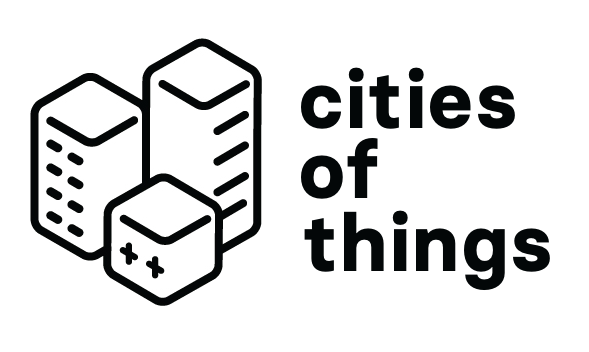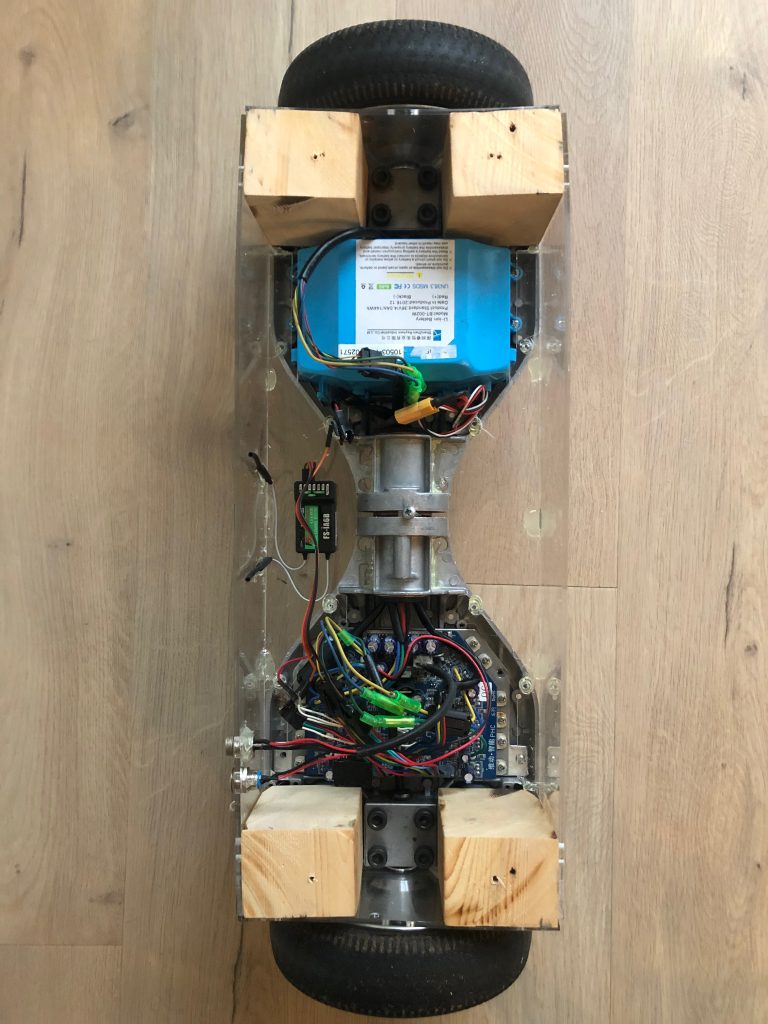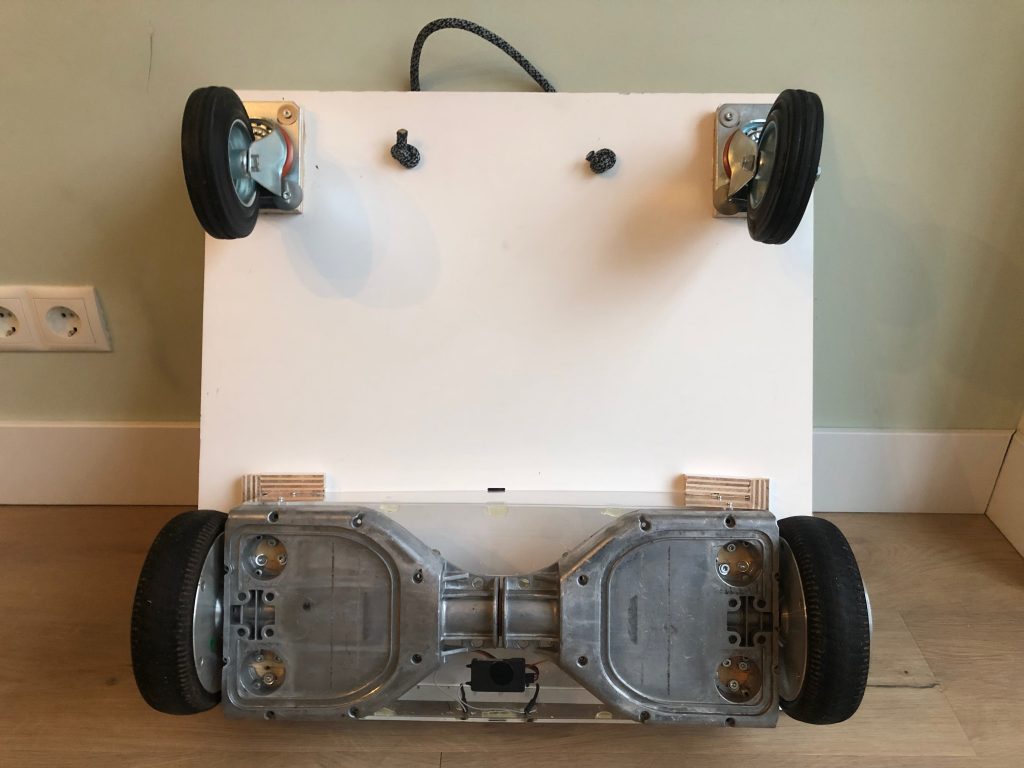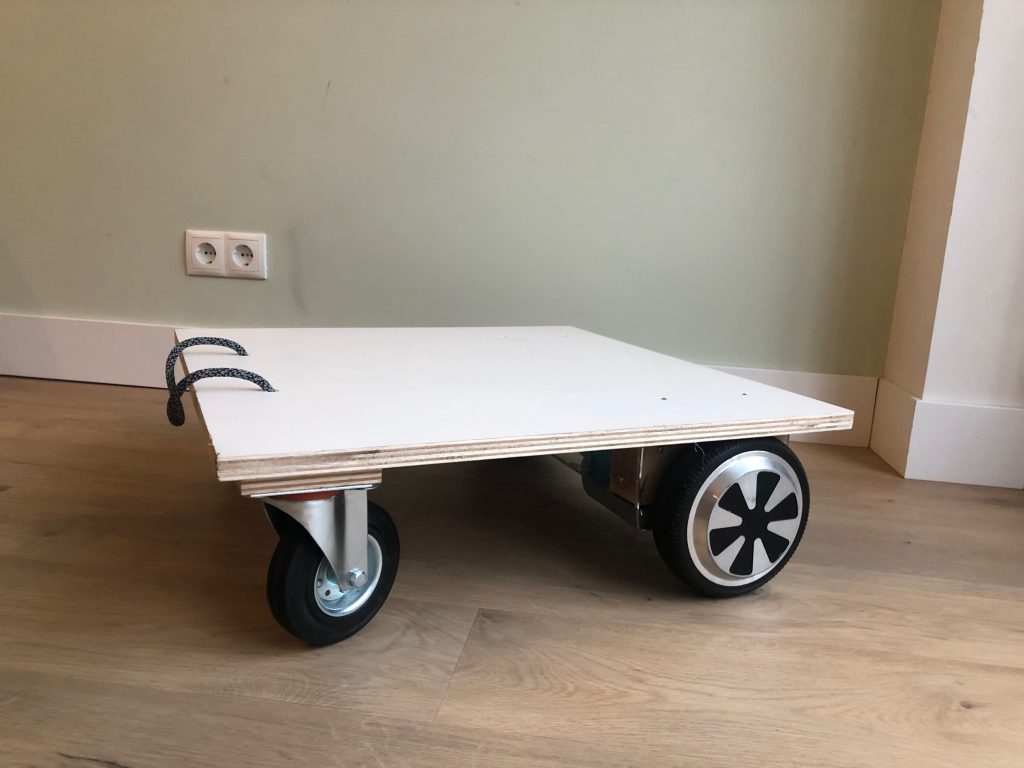We have a separate website in Dutch with all activities and progress on the Wijkbot project. You can also find it easily via Wijkbot.nl
The “Wijkbot Kit” (where “wijk” means “neighborhood” in Dutch) is a collection of open-source, low-cost tools and methods for co-creating “city bots” that can be designed, developed, owned, maintained and operated by local communities.
Make your own Wijkbot with this DIY recipe!
While self-driving cars are receiving a lot of publicity, all kinds of other autonomously operating vehicles and objects have already started showing up in our cities. In a few years, we will likely find ourselves surrounded by autonomous street-cleaners, vendors, advertisers, delivery vehicles, or security bots. These kinds of devices are being developed by various big-tech companies and startups, driven by new business opportunities. Perhaps because of that, we rarely hear the critical questions being asked about the impact such “city bots” will have on the everyday lives of people in cities.
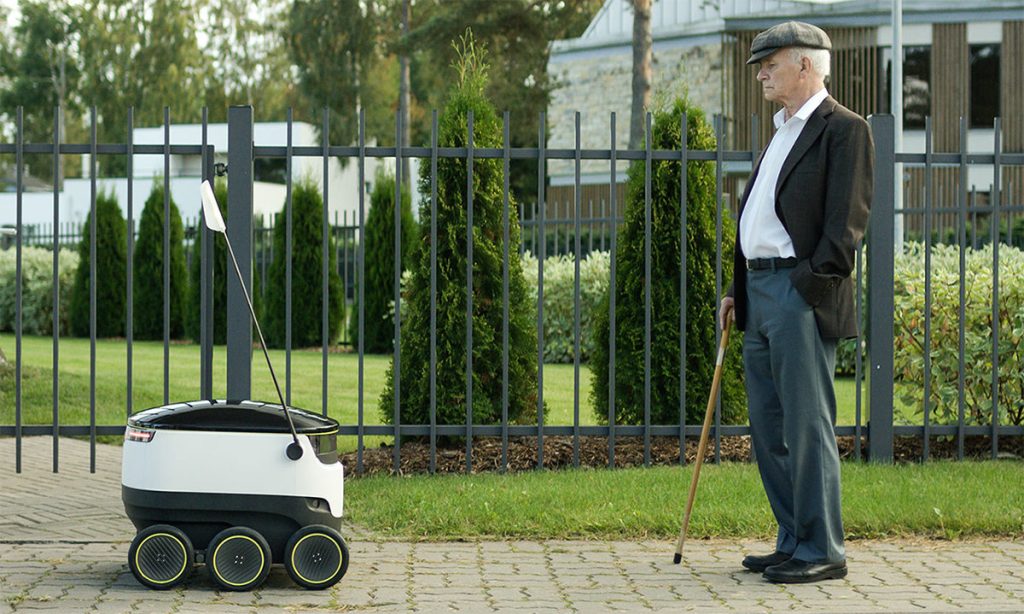
In the project Cities of Things Lab 010 we develop ways to engage inhabitants of various neighborhoods of Rotterdam in creating an alternative version to the above future; one in which city bots are designed, developed, owned, maintained and supervised by the citizens themselves.
The Tech Modules
The technical part of the WijkBot Kit is a growing collection of DIY, open source and low-cost modules for building a neighborhood bot. The kit is based on hacked* second-hand “hoverboard” electric toys, and off-the-shelf components. It allows people to jointly build full-scale, remote-controlled robot prototypes in a few hours’ time. A citizen-designer can then test the prototype as a “wizard-of-Oz”, controlling the robot’s movements, talking through its speakers, listening and watching through its microphones and cameras. The WijkBot Kit is a work-in-progress initiative. With the help of students at the Rotterdam University of Applied Sciences, we’re further extending it with modules enabling increased autonomy of the prototyped robots. This includes, for example, modules for autonomous navigation, space mapping, obstacle avoidance, or services for managing multiple robots operating in a neighborhood. Instructions and documentation for building your own robot will be released publicly and can currently be provided on request.
*The project uses an open-source hoverboard firmware developed by Emanuel Feru, Lucy Fauth, and multiple other contributors https://github.com/EFeru/hoverboard-firmware-hack-FOC
The WijkBot Co-Creation Tools
Alongside the technological kit, we’re also developing tools supporting the co-creation and co-maintenance of city bots by local citizen communities. This includes ways to identify neighborhood problems and opportunities for which robots could be of help, organize neighborhood co-creation sessions, set up a business model for a robot initiative, organize robot development and maintenance, as well as deal with the involved ethical challenges.
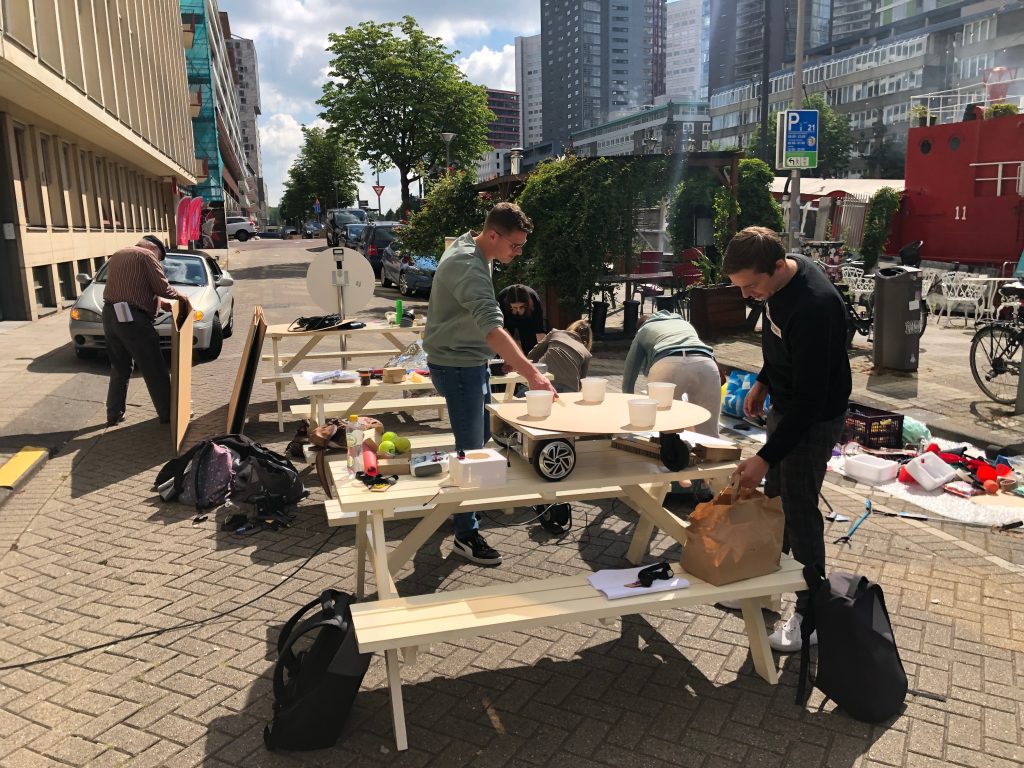
The WijkBot-enabled research
WijkBot prototypes allow us to do research into the near future risks and opportunities of autonomous robots, with an explicit focus on the investigation of the roles neighborhood bots can assume in local communities and ways in which they can sustainably contribute to their thriving. This research is embedded in the Civic Prototyping lectorate of the Research Centre Creating010 at the Rotterdam University of Applied Sciences, and its research theme Smart and Social City.
WijkBots to date
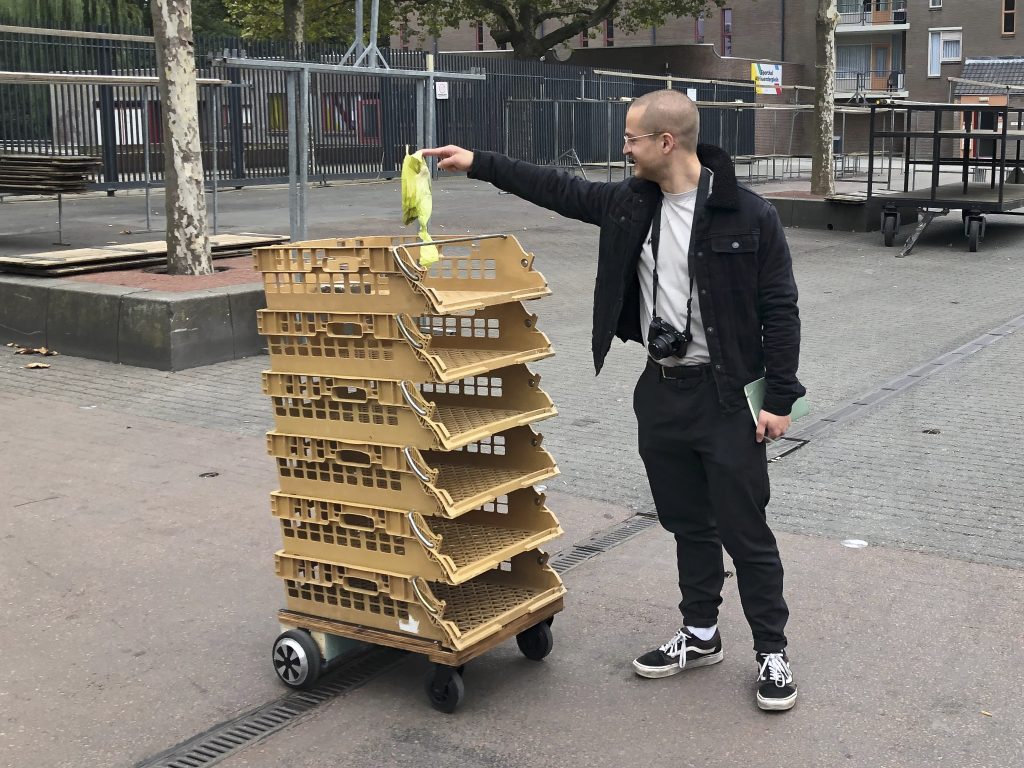
The “Afrikaanderbot” helps citizens of the Afrikaanderwijk in Rotterdam collect unsold vegetables and fruit from the local street market vendors. It then brings the leftovers to the local recycling center, where they are turned by the locals into soup and smoothies, sold or frozen. It also helps the elderly bring the groceries home, allows those immobilized at home to visit the market remotely, triggers conversations and forms bonds among people looking after it, and through all this becomes an integral part of the local community.
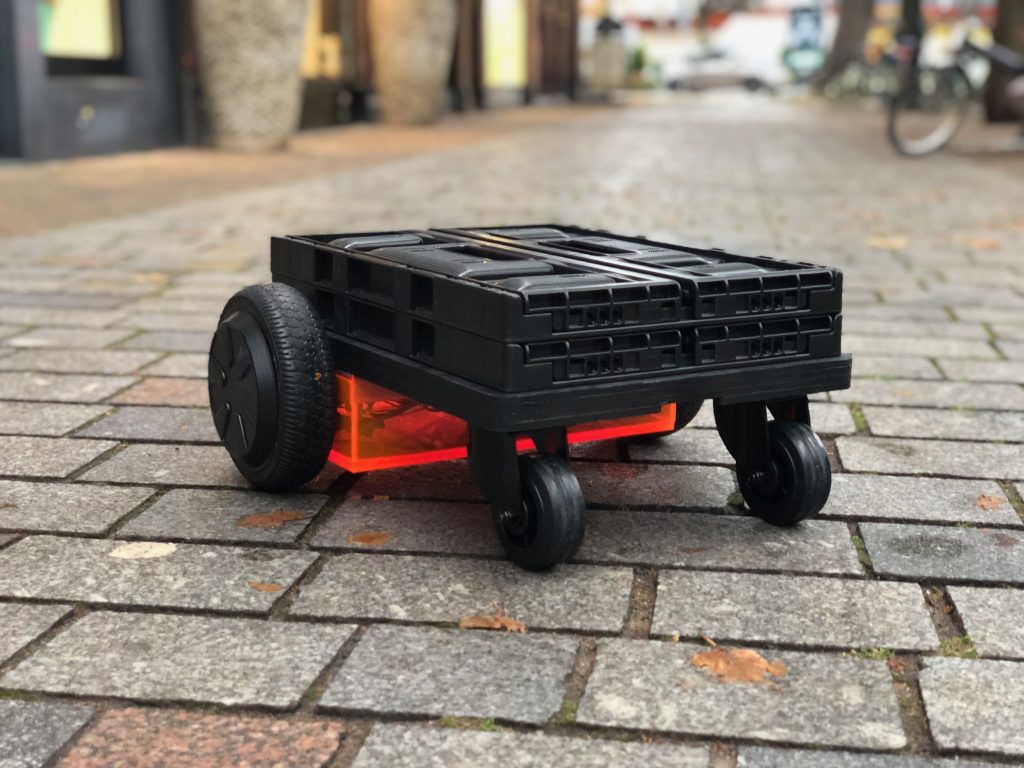
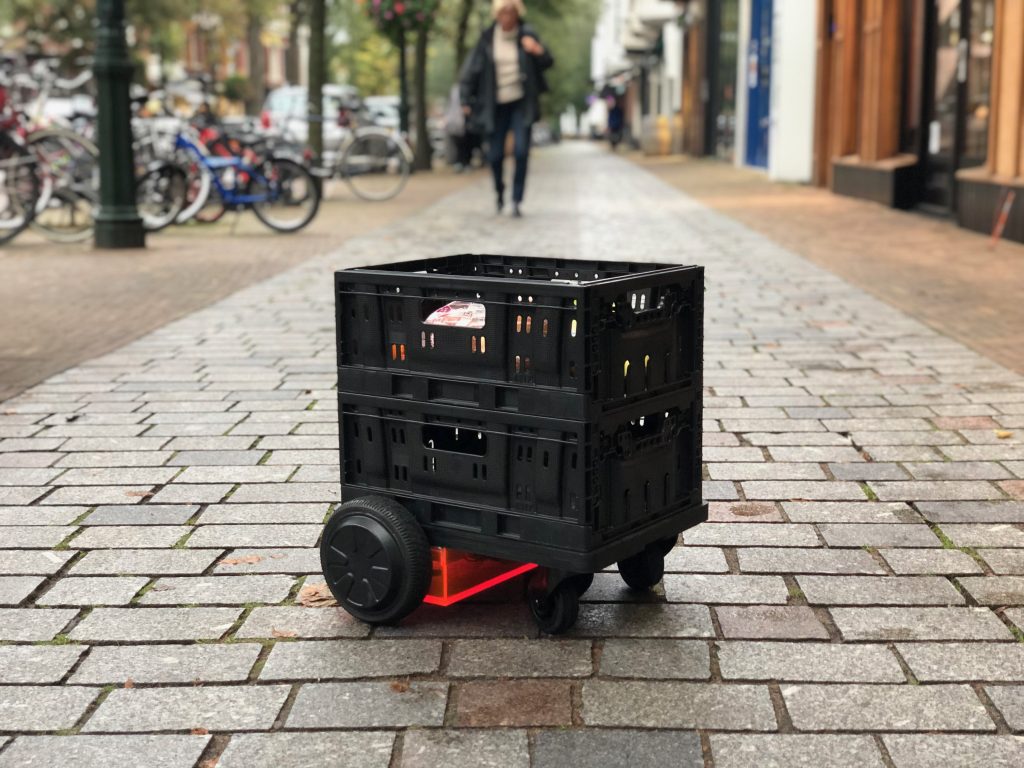
The WijkBot Mini is a city bot made especially for the “Collaboration for Impact” exhibition at the Dutch Design Week 2022. It is intended for assisting citizens with small chores in the neighborhood, such as helping the elderly bring groceries home, and raises many questions on the role, agency and ownership of such robots when regarded as co-inhabitants of a neighborhood.
The Stadslabbots were created as street-entertainment devices during a 1.5h co-creative outdoor workshop during the 10-year anniversary of the Stadslab FabLab at the Rotterdam University of Applied Sciences. Since then, one of them has become a permanent Stadslab resident and is constantly transformed and augmented with new playful features by the Stadslab community.
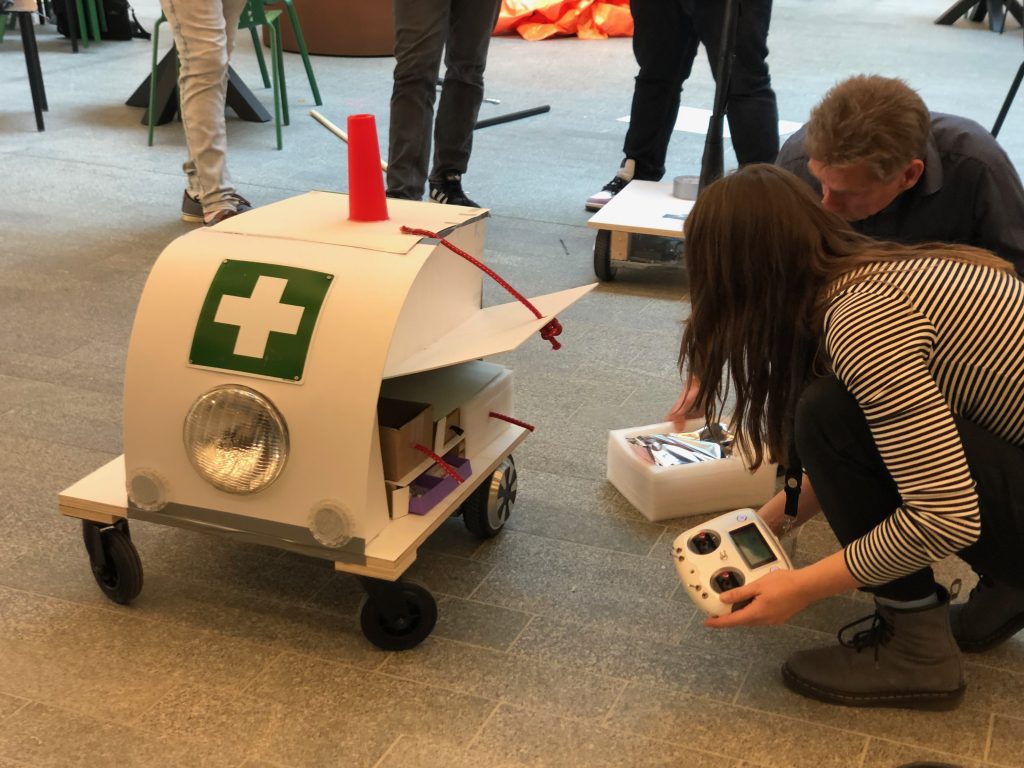
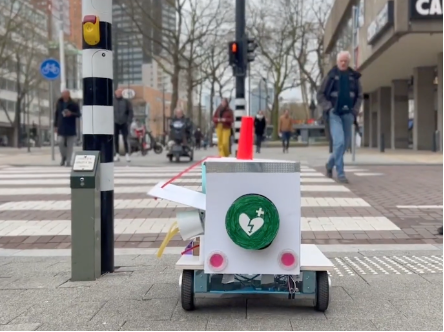
Mobeh was a prototype of a small ambulance-robot built using the Wijkbot Kit and tried out on the streets of Rotterdam during a one-day hackathon. The prototype triggered a debate on the undesirable effects of such seemingly useful devices; will they lead to manned ambulances being exclusively available to those with expensive health insurance.
The Punchbot was a robotic punchbag, also developed during the one-day hackathon. It was intended to help mitigate street-violence by providing an alternative way for youngsters to vent aggression and show off to their peers. During the hackathon it was brought to the streets of Rotterdams, and received praises from not only the passing-by youngsters, but also policemen and policewomen in training.
The Protestbot was an unfinished one-day hackathon prototype, materialising the idea that autonomous robots are not politically neutral, and can become political activists themselves
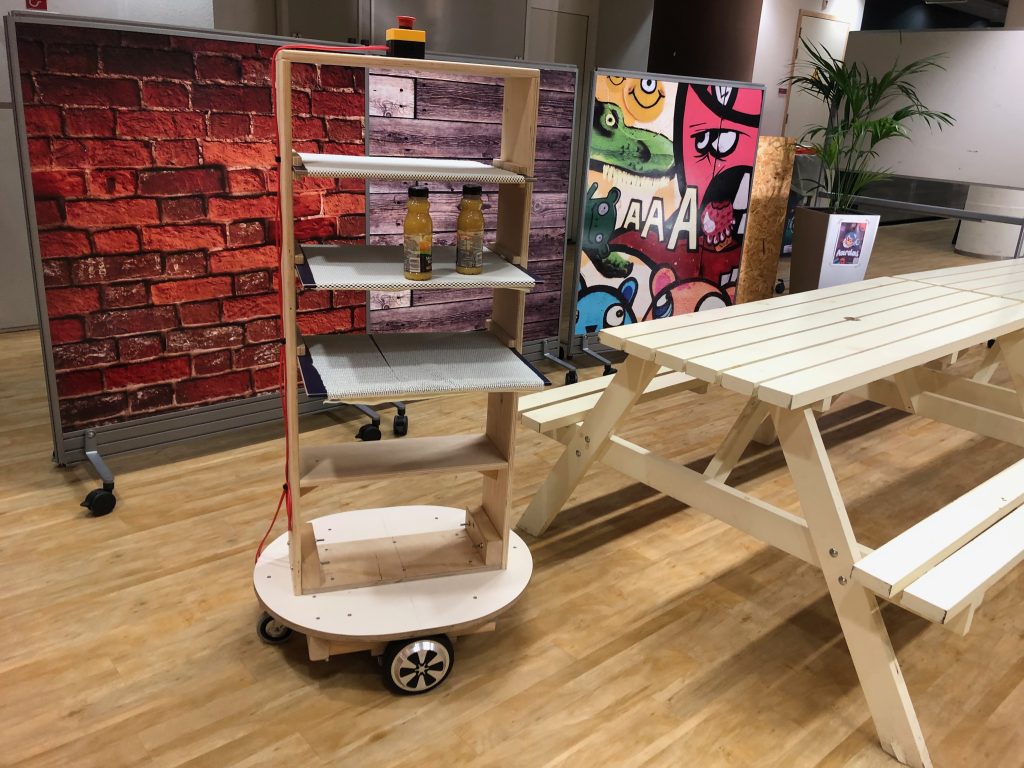
The Oberbot was a testbed prototype of Technical Informatics students at the Rotterdam University of Applied Sciences. The prototype has evolved into a working, autonomous robotic restaurant waiter prototype.
Mission
We continue to develop the WijkBot Kit to find new ways for creating positive and productive ways of living and collaborating among citizens and city bots. By designing and prototyping them together in local communities, we aspire to strengthen local civic competences and capacities. We envision a future in which citizens, together with designers and new kinds of professionals, will design and develop city bot prototypes themselves that match the daily practice and needs of Rotterdam residents. In the Afrikaanderwijk we are preparing to realize a ‘biotope of smart objects’ that will work and live as neighbors with residents and that improve social participation and inspire new experiences.
| Interested in using WijkBot Kit for your research, reach out to us via wijkbot@citiesofthings.nl Contact: Tomasz Jaskiewicz or Iskander Smit |
